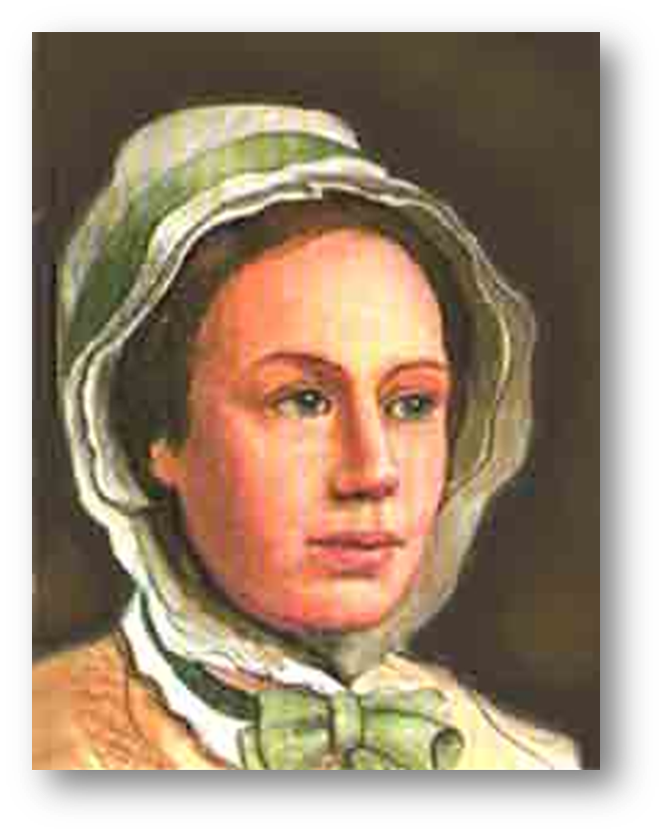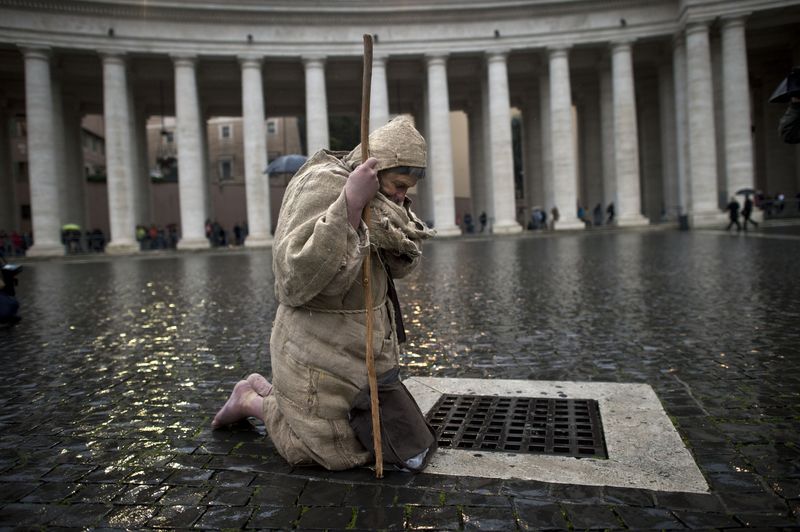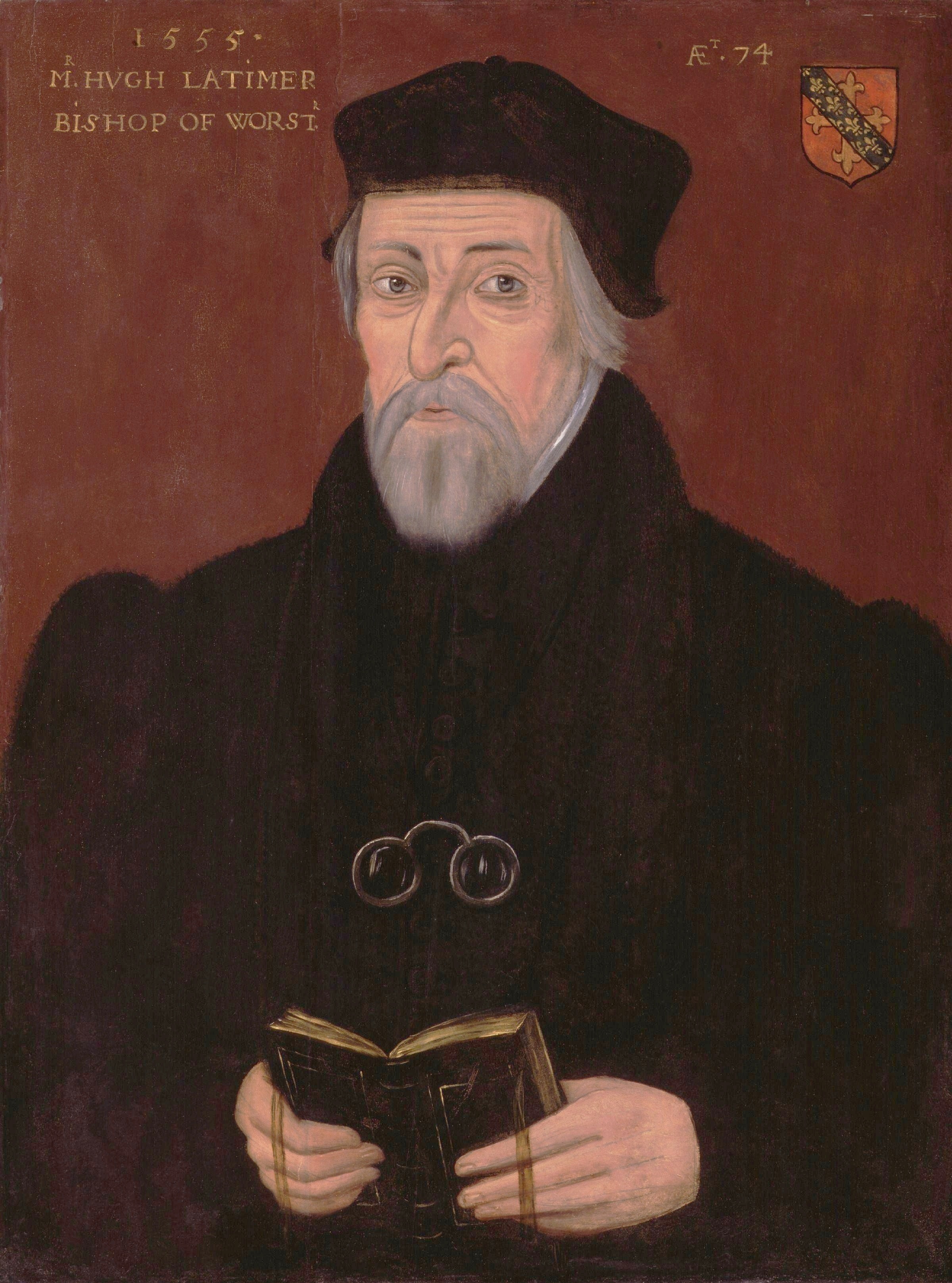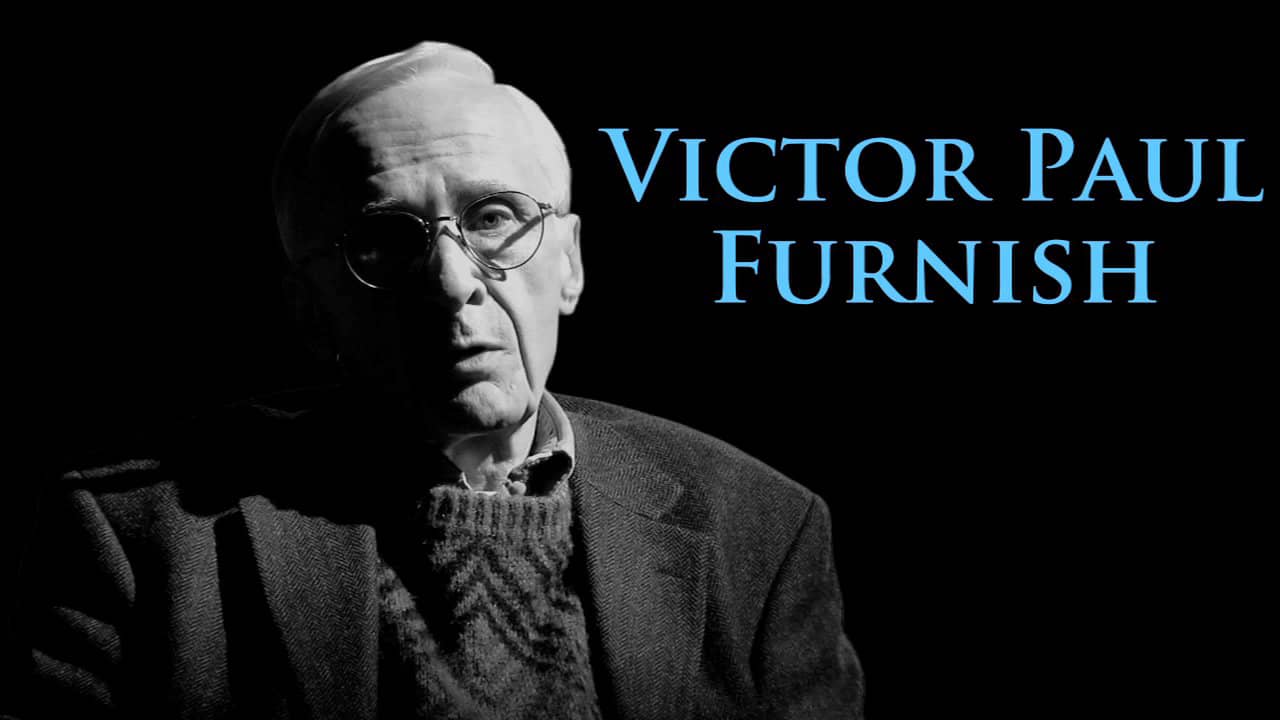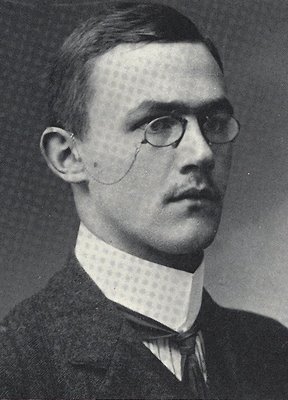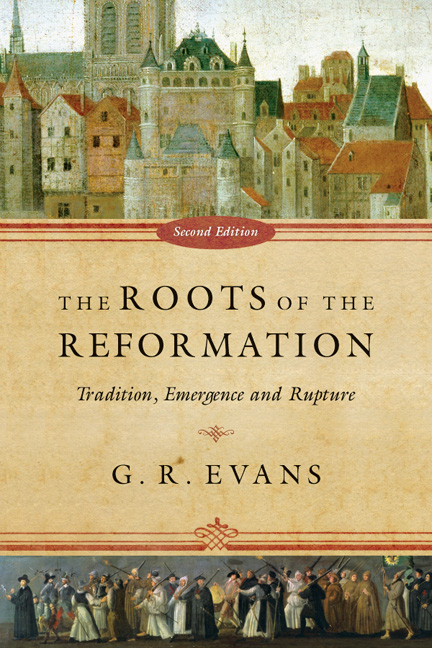 Evans, G. R., The Roots of the Reformation: Tradition, Emergence and Rupture
Evans, G. R., The Roots of the Reformation: Tradition, Emergence and Rupture
(Downers Grove: IVP Academic, 2012), 528pp.
ISBN: 978-0-8308-3947-6
Gillian Evans, Professor of medieval theology and intellectual history at Cambridge University, has written a lively history, tracing the theological, ecclesial and socio-political roots of the Reformation. The twenty-three chapters are divided broadly into three historical periods, although the treatment of the topic is thematic rather than chronological. In the first part (chapters two through nine, after a brief introductory chapter), Evans introduces the themes which emerged in the early years and centuries of the church and which will occupy the major part of the story: the ideas of church and faith, the Bible, becoming and remaining a member of the church, the recurring problem of sin, especially in the lives of those already baptised, sacraments, church organisation and decision-making, and the relation between church and state.
Part two, entitled “Continuity and Change in the Middle Ages,” explores issues of monasticism and monastic education, the invention of the universities, the beginnings of academic theology, the rise of the preaching orders and the arts of preaching, lay religious experimentation and the emergence of rebels and dissidents. Layered throughout the treatment of these matters, however, are notes on and discussion of the themes introduced in the first part, clearly demonstrating the continuing presence and relevance of these central issues, while also highlighting how they developed, morphed and changed in the medieval period.
Part three, “Continuity and Change From the Reformation” (chapters sixteen through twenty-three), deals with the Reformation period itself, beginning with the Renaissance, and following the story of Luther and his heirs, Henry VIII and English Lutheranism, the Anabaptists, Calvin and the Puritans, and the Catholic Reformation, before two final chapters on new dimensions of the church and state issue, and new questions with respect to the Bible. Again, this part continues the exploration of the the central issues raised in part one in these new social, political and religious landscapes. A brief conclusion is then followed by a thirty page “Handlist of Reformation Concerns and Their History” – a synchronic and thematic treatment of the key issues which students studying church history units will find very helpful indeed.
The central argument of the book is clear: those issues which were so important in the progress of the Reformation were not new. Their roots go back to the earliest days of the church, and indeed, the same issues had come to the fore, sometimes in differing form, time and again in the Patristic and Medieval periods – and would continue to do so in the post-Reformation period, right up to the present. They are perennial. Further, it becomes clear that it was not simply the issues or the personalities themselves which drove the “success” of the Reformation. Where previous attempts at reform had been effectively suppressed, the new social, political and educational realities of the early sixteenth century meant that Luther’s Reformation, and those of his associates, were given the opportunity to take root and become established.
The great strength of the book is not simply Evans’ identification and discussion of the 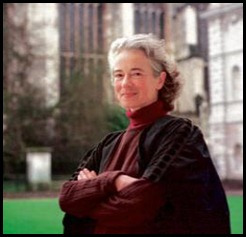 central issues, but her mastery of the primary sources, and her artful telling of the story. Numerous characters are introduced through their memoirs and other writings, and interesting bypaths are explored, the whole picture becoming more and more detailed, coloured, and vibrant in the telling. The style is easy, deeply informed, and at times quite humorous – for example, Abelard’s shift into the profession of theology, “an obvious career move” (162), or the wry comment that “Henry…began to feel that there was much to be said for the Lutherans’ ideas, especially the view that the pope was antichrist, a usurper, and that the proper head of a local church was the Christian magistrate, in fact just such a magistrate as himself” (323).
central issues, but her mastery of the primary sources, and her artful telling of the story. Numerous characters are introduced through their memoirs and other writings, and interesting bypaths are explored, the whole picture becoming more and more detailed, coloured, and vibrant in the telling. The style is easy, deeply informed, and at times quite humorous – for example, Abelard’s shift into the profession of theology, “an obvious career move” (162), or the wry comment that “Henry…began to feel that there was much to be said for the Lutherans’ ideas, especially the view that the pope was antichrist, a usurper, and that the proper head of a local church was the Christian magistrate, in fact just such a magistrate as himself” (323).
Ultimately, the crux of the Reformation was salvation: how ordinary people might experience the grace of God in salvation and Christian life based solely on the saving efficacy of Christ’s work at the cross, and communicated through the Scriptures.
The essential complaint rising up from the grass roots…was that the institutional church had overextended itself and was making excessive claims, requiring the faithful to comply with human impositions which were not God’s requirements at all. So this was at root an ecclesiological challenge as well as a personal one. Luther’s doctrine of justification by faith was a bold attempt to cut through layers of complexity and detailed requirements, and to offer believers a simple promise. All they had to do was believe. They did not have to earn their way to heaven by doing penances or good works. Anyone could hope for heaven who had Christ as his or her Savior. But to adopt that view was to reject much of the apparatus of the institutional church, by which it set much store and in which it had a large investment, financial as well as spiritual (466).
The book has not been without criticism, however, especially in its first edition, where a number of errors of historical detail were identified by scholars. The publishers acknowledged these faults and quickly responded by issuing a corrected second edition. This raises an interesting question concerning the value of the book overall. For me, Evans’ book is valuable because of her wide-angle approach to the Reformation and its causes. It tells a large and complex story encompassing many centuries. The errors of factual detail are important, but concern the detail of the story at the micro rather than the macro level. Make no mistake: the errors were errors indeed, and needed to be corrected if the book was to retain its value. Nevertheless, it is at the level of the big picture, tracing the significant themes which weave through the centuries continuing and changing, that the book makes its contribution and by which it should ultimately be appraised. On this basis I consider the book to be valuable, but also counsel prospective buyers to ensure they obtain the revised edition. (This review concerns the first edition.)
This work will reward anyone seeking a more comprehensive understanding of the Reformation, or indeed, the sheer scope and variety of western church history up to the Reformation. Students and ordinary Christians will benefit much from reading this story and thinking not only about the Reformation but about contemporary Christian life and church in the light of the many developments, events, personalities and conflicts that Evans has so masterfully detailed. Teachers will also appreciate Evans’ work for its detailed exposition, her insightful argument concerning the key issues which lay deeply rooted in the history leading to the flowering of the Reformation, the abundant use of diverse primary sources, and the many byways and cameos which make the story so come alive.
For myself, I appreciated all this, and more besides: the careful nuance whereby Evans distinguished new and emerging developments helped me understand and distinguish aspects of the story which previously had been hazy. Further, the many insights into everyday Christian life in these earlier periods of our own story, and pastoral strategies employed for the care and development of God’s people then, help me think about Christian life and pastoral formation now. There is much to appreciate and reflect on in this commendable text.
